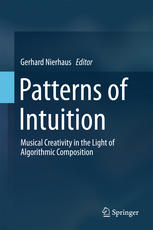

Most ebook files are in PDF format, so you can easily read them using various software such as Foxit Reader or directly on the Google Chrome browser.
Some ebook files are released by publishers in other formats such as .awz, .mobi, .epub, .fb2, etc. You may need to install specific software to read these formats on mobile/PC, such as Calibre.
Please read the tutorial at this link: https://ebookbell.com/faq
We offer FREE conversion to the popular formats you request; however, this may take some time. Therefore, right after payment, please email us, and we will try to provide the service as quickly as possible.
For some exceptional file formats or broken links (if any), please refrain from opening any disputes. Instead, email us first, and we will try to assist within a maximum of 6 hours.
EbookBell Team

5.0
38 reviewsThe present book is the result of a three year research project which investigated the creative act of composing by means of algorithmic composition. Central to the investigation are the compositional strategies of 12 composers, which were documented through a dialogic and cyclic process of modelling and evaluating musical materials. The aesthetic premises and compositional approaches configure a rich spectrum of diverse positions, which is reflected also in the kinds of approaches and methods used. These approaches and methods include the generation and evaluation of chord sequences using genetic algorithms, the application of morphing strategies to research harmonic transformations, an automatic classification of personal preferences via machine learning, and an application of mathematical music theory to the analysis and resynthesis of musical material. The second part of the book features contributions by Sandeep Bhagwati, William Brooks, David Cope, Darla Crispin, Nicolas Donin, and Guerino Mazzola. These authors variously consider the project from different perspectives, offer independent approaches, or provide more general reflections from their respective research fields.